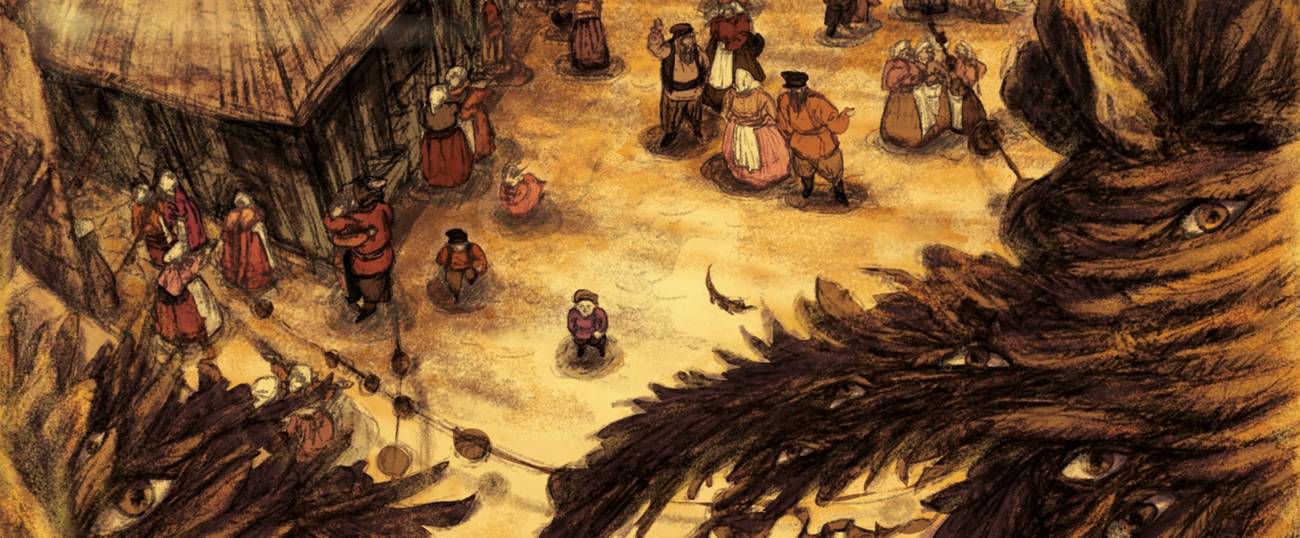‘Dream Apart’ Is the Jewish RPG You’ve Been Waiting For
Why play as a paladin or a warlock when you can be a matchmaker or a klezmer?




Tired of all those dragons in all those dungeons? A new tabletop roleplaying game will allow you to become Zusman the matchmaker, or perhaps Glukel the klezmer artist, with the opportunity to do anything from fight anti-Semitism to commune with the demon Lillith.
This Jewish RPG, “Dream Apart,” is in the midst of a kickstarter fundraising campaign alongside its sister game, “Dream Askew,” a queer survivalist fantasy.
The games contain a multitude of diverse creatives, but the main writer of “Dream Apart” is Ben Rosenbaum. A computer programmer by trade, Rosenbaum is also a writer whose fiction has been nominated for the likes of Hugo and Nebula Awards, prominent sci-fi/fantasy writing prizes.
Rosenbaum, 48, was raised in Virginia, but currently lives with his family in Basel, Switzerland, where they are active in the Jewish community. A lifelong nerd, he played RPGs as a kid (too hipster for “Dungeons & Dragons,” he preferred the likes of “Runequest”), but had an unease with the typical fantasy milieu.
“It’s sort of a pseudo-medieval world,” he said. “It was always kind of clear to me even as a little kid that we were on the other side of the sword. That’s not our narrative of the Middle Ages.”
When he had children of his own, Rosenbaum went back to the world of RPGs, and was delighted with what he found.
“The state of the art had moved on,” he said of contemporary games, “They talked about a huge range of human experience.”
Inspired, he set out to make his own games, often creating his own spin on others’ work, popular in the gaming world (speaking of spins—he once created a game that used a dreidl instead of a die). Eventually, Rosenbaum made contact with Avery Alder, a queer game designer with a catalogue of great products that reflected the diversity of those who play. One of her projects was “Dream Askew,” inspired by the mechanics of a popular RPG called Apocalypse World. (Rosenbaum compares “Apocalypse World” to the Velvet Underground; it seems as though everyone who encountered it went on to make games of their own.)
“Dream Askew’s” themes of danger and oppression that accompany marginalization for life as a queer person resonated with Rosenbaum, who thought Alder’s take would translate well to Jewishness. At first, she simply gave Rosenbaum her blessing, but as he playtested and tweaked, she eventually became interested in a full-on collaboration.
“Dream Apart” and “Dream Askew” use no dice, but function more like fantasy improv. Players are assigned broad characters and settings that they then personalize. Based on suggestions from the game, the group talks out problems, and their respective solutions, often in character. Other than matchmaker and klezmer, starting archetypes for “Dream Apart” are the Midwife, the Scholar, the Soldier, and the Sorcerer. The game even includes quotes from the likes of I.B. Singer and the Talmud to feed you inspiration.
Suggested conflicts for the game range from dybbuk possessions to a brewing pogrom.
“It’s not heavy-handed; it’s really fun and exploratory,” Rosenbaum said. “But we’re going to explicitly talk about oppression and liberation. You have to make sure that people see the oppression but also see the agency.”
For the record, when I ran through a play-test of “Dream Apart” with my friends (who ranged from D&D experts to RPG novices), we couldn’t resist including both anti-Semitism and magic in our story. A ragtag bunch of shtetl-dwellers (who seemed to all have a lot of tsuris, from a runaway daughter to a failing marriage) discovered the body of a gentile in the Jewish part of town and feared suspicion would fall on the heads of the Jews. And so, we set out to find who the man was, and who had killed him (and to hide the body, of course).
The game progressed quickly when we were struck with inspiration, and dragged when we felt shy or at a loss to move it forward. As the afternoon wore on, we realized it was getting late, and quickly jumped to a deus ex machina imbued scene in which a demon/ghost baby bartered with us on behalf of Lilith to solve the murder, clear our names, and (more or less) return things to normal.
(You had to have been there.)
If you’re interested in supporting Alder, Rosenbaum and the rest, you can still put in a few kopeks. The Kickstarter passed its goal on the very first day, but the fundraising campaign, largely an opportunity to pre-order copies of the games, isn’t over yet; it ends June 17. (There’s also a lower-donating option for players living below the poverty line.) Stretch goals have included consultants adding the likes of Romani elements to the game.
So give the game a go! Add Jewish characters to “Dream Askew.” Queer “Dream Apart.” And demon babies will enhance any session.
Gabriela Geselowitz is a writer and the former editor of Jewcy.com.